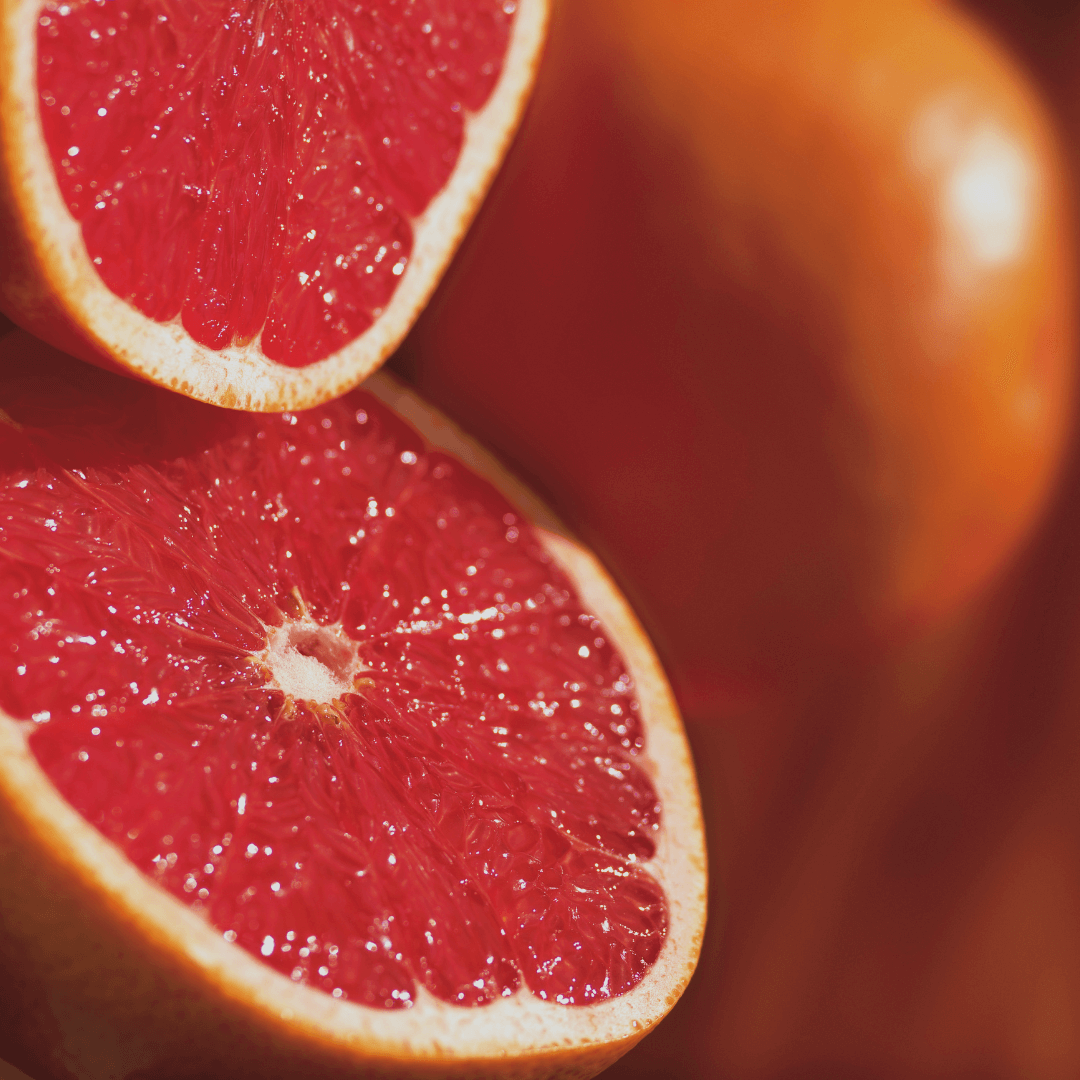The Best Probiotics For Vaginal Health

What is the vaginal microbiome?
Throughout a woman’s life, the bacteria in the vaginal tract are constantly fluctuating. Whether beneficial or harmful microbes are dominant, these shifts have a significant impact on vaginal health and overall well-being. That’s why understanding this ecosystem is key to making informed choices about the best probiotics, foods, and supplements for optimal vaginal health. Read on to learn more about the vaginal microbiome, what happens when it becomes disrupted, and how vaginal health can be supported naturally.
What is the vaginal microbiome?
The vaginal microbiome is the community of microorganisms that exist within the vaginal tract, and they are critical for vaginal health1. Compared to other parts of the body, the microbiome found here is unique due to its low microbial diversity. The beneficial Lactobacillus genus is often predominant, although the vaginal microbiome fluctuates throughout a woman’s life1. During pregnancy, Lactobacillus species dominate, yet in menstruation and menopause Lactobacillus abundance decreases2. There are five main community state types (CST) in the vaginal microbiome, which include1:
- Lactobacillus crispatus - Typically one of the most stable and protective species found in the vaginal tract. Associated with the production of lactic acid and maintenance of a low pH.
- Lactobacillus gasseri - Typically protective and found in both the vaginal and gastrointestinal tract. Less common but supports vaginal health by maintaining an acidic environment.
- Lactobacillus iners - A common species that can transition between being protective and disruptive.
- Diverse anaerobic bacteria - Characterised by low Lactobacillus and high diversity of anaerobes such as Gardnerella, Atopobium, and Prevotella. Usually disruptive bacteria that are associated with higher vaginal pH and increased vaginal infections.
- Lactobacillus jesenii - A less common, typically protective species contributing to the acidic vaginal environment.
Disruptions and their consequences
The vaginal microbiome is a dynamic ecosystem that is easily disrupted by natural hormonal shifts, antibiotic use depleting beneficial bacteria, sexual activity, and contraceptive methods. Shifts in the vaginal microbiome can lead to several vaginal health issues, including:
- Bacterial vaginosis (BV) - Caused by an overgrowth of anaerobic bacteria such as Gardnerella vaginalia and Atopobium vaginae when Lactobacillus levels drop. This leads to increased vaginal pH, discharge, odour, and discomfort, and has been associated with a higher risk of sexually transmitted infections and preterm birth3.
- Urinary tract infections (UTIs) - Occur from a loss of Lactobacillus protection which allows uropathogens like Escherichia coli to colonise the vagina and travel to the urinary tract4. This can cause pelvic pain, an urgent need to urinate, and a burning sensation when urinating.
- Candidiasis (Yeast infection) - Disruption of the bacterial balance allows the overgrowth of Candida species. Symptoms include itching, discharge, irritation, and discomfort5.
Best probiotics for vaginal health
Probiotics are live microorganisms that, when administered, may have benefits for vaginal health. The most common strains found in probiotics for vaginal health include species from the Lactobacillus genus. Multiple clinical studies have reported that probiotics are beneficial for the prevention and treatment of vaginal conditions.
Restoration of healthy vaginal flora
A clinical trial in healthy women found there was a significant increase in vaginal Lactobacillus colonisation and reduced colonisation by yeast and coliforms in those treated with oral Lactobacillus rhamnosus GR-1 and Lactobacillus fermentum RC-14 compared to the placebo group6. They also reported a restoration from asymptomatic BV microflora to normal microflora in 37% of treated women compared to 13% in the placebo group6.
BV treatment and prevention
A trial carried out in women diagnosed with a vaginal infection found that, after 44 days, there was restoration of balanced vaginal microbiota in 61.5% of those treated with oral Lactobacillus rhamnosus GR-1 and Lactobacillus reuteri RC-14, compared to 26.9% in the placebo group7. After 6 weeks, normal vaginal microbiota was still present in 51.1% of the treated group and 20.8% of the placebo group7.
Candidiasis prevention
A study in women with a history of recurrent vulvovaginal candidiasis found that oral Lactobacillus plantarum P17630 significantly increased vaginal colonisation of lactobacilli, and provided greater improvements in redness and swelling when compared to placebo8. They also found that the increased colonisation of lactobacilli was associated with reduced clinical signs and symptoms of candidiasis, suggesting it was effective against relapses8.
Prevention of UTIs
One trial in premenopausal women with recurrent UTIs reported a 15% recurrence rate of UTIs in those treated with vaginal Lactobacillus crispatus CTV-05, compared to 27% in the placebo group9.
Foods for vaginal health
Diet can also play a supportive role in maintaining a healthy vaginal microbiome, especially through the inclusion of plant-based, probiotic-rich foods and functional beverages. These include yoghurt, kefir, and fermented vegetables like sauerkraut, all of which have been shown to contain strains of Lactobacillus10. Research is ongoing to explore how these foods may have beneficial effects on the vaginal microbiome.
Emerging evidence suggests that cranberries may be beneficial for vaginal health. Thought to work by helping to prevent the adhesion of pathogenic bacteria to the urinary and vaginal epithelium, although the exact mechanisms and clinical implications are still being investigated11. One clinical trial involving women with a history of UTIs found that those who drank cranberry juice every day had fewer symptomatic UTIs compared to placebo11. Another clinical study of women diagnosed with vulvovaginal candidiasis found that a combination of cranberry juice with azole antifungals significantly reduced the risk of long-term recurrence of candidiasis compared to azole treatment alone12.
Vaginal health supplements
Research into vaginal health supplements is also ongoing, with some evidence to suggest that ingredients such as D-Mannose and vitamin C may aid in symptom relief and potentially the prevention of some vaginal infections.
D-Mannose
A naturally occurring sugar studied as a non-antibiotic option for UTIs. It is thought to work by preventing the adhesion of Escherichia coli to the urinary tract lining. There is limited evidence to support the prevention of UTIs with D-Mannose13. However, one clinical study involving non-menopausal women with uncomplicated Escherichia coli UTIs found that a D-Mannose-based supplement was effective in clinical symptom resolution compared to placebo14.
Vitamin C
Supports vaginal health by acidifying the vaginal environment and promoting a microbiome dominated by protective bacterial species. A trial in women with BV found that vitamin C vaginal tablets led to a significantly higher cure rate of BV compared to placebo15. In another clinical study, involving women who had recently been treated for BV, they found that vitamin C vaginal tablets reduced the recurrence rate of BV to 16.2% compared to 32.4% in the placebo group16.
Applying probiotic science in clinical practice
Maintenance of a healthy vaginal microbiome is essential for preventing common conditions like BV, UTIs, and candidiasis. Research supports the use of specific probiotic strains, functional foods, and targeted supplements, as low-risk, natural strategies to help restore microbial balance and reduce recurrence of vaginal infections6–9, 11, 12, 14–16. As healthcare professionals, it’s crucial to recommend evidence-backed probiotics, dietary and supplement choices, and consider personalised advice for each patient’s symptom patterns and risk factors. Probiotics aren’t just a trend, they may be key to helping women naturally protect, restore, and maintain their vaginal health.
References
- France M, Alizadeh M, Brown S, Ma B, Ravel J. Towards a deeper understanding of the vaginal microbiota. Nat Microbiol. 2022 Mar 4;7(3):367–78.
- Krog MC, Hugerth LW, Fransson E, Bashir Z, Nyboe Andersen A, Edfeldt G, et al. The healthy female microbiome across body sites: effect of hormonal contraceptives and the menstrual cycle. Hum Reprod. 2022 Jun 30;37(7):1525–43.
- Van De Wijgert JHHM, Jespers V. The global health impact of vaginal dysbiosis. Res Microbiol. 2017 Nov;168(9–10):859–64.
- Lewis AL, Gilbert NM. Roles of the vagina and the vaginal microbiota in urinary tract infection: evidence from clinical correlations and experimental models. GMS Infect Dis. 2020 Mar 26;8:Doc02.
- Martins N, Ferreira ICFR, Barros L, Silva S, Henriques M. Candidiasis: Predisposing Factors, Prevention, Diagnosis and Alternative Treatment. Mycopathologia. 2014 Jun;177(5–6):223–40.
- Reid G, Charbonneau D, Erb J, Kochanowski B, Beuerman D, Poehner R, et al. Oral use of Lactobacillus rhamnosus GR-1 and L. fermentum RC-14 significantly alters vaginal flora: randomized, placebo-controlled trial in 64 healthy women. FEMS Immunol Med Microbiol. 2003 Mar;35(2):131–4.
- Vujic G, Jajac Knez A, Despot Stefanovic V, Kuzmic Vrbanovic V. Efficacy of orally applied probiotic capsules for bacterial vaginosis and other vaginal infections: a double-blind, randomized, placebo-controlled study. Eur J Obstet Gynecol Reprod Biol. 2013 May;168(1):75–9.
- Vladareanu R, Mihu D, Mitran M, Mehedintu C, Boiangiu A, Manolache M, et al. New evidence on oral L. plantarum P17630 product in women with history of recurrent vulvovaginal candidiasis (RVVC): a randomized double-blind placebo-controlled study. Eur Rev Med Pharmacol Sci. 2018 Jan;22(1):262–7.
- Stapleton AE, Au-Yeung M, Hooton TM, Fredricks DN, Roberts PL, Czaja CA, et al. Randomized, Placebo-Controlled Phase 2 Trial of a Lactobacillus crispatus Probiotic Given Intravaginally for Prevention of Recurrent Urinary Tract Infection. Clin Infect Dis. 2011 May 15;52(10):1212–7.
- Chilton S, Burton J, Reid G. Inclusion of Fermented Foods in Food Guides around the World. Nutrients. 2015 Jan 8;7(1):390–404.
- Maki KC, Kaspar KL, Khoo C, Derrig LH, Schild AL, Gupta K. Consumption of a cranberry juice beverage lowered the number of clinical urinary tract infection episodes in women with a recent history of urinary tract infection. Am J Clin Nutr. 2016 Jun;103(6):1434–42.
- Wei D, Chen Y, Chen Y, Cui T, Niu X. Assessing the treatment effect of cranberry type A proanthocyanidins on vulvovaginal candidiasis: a randomised controlled clinical interventional study. Gynecol Obstet Clin Med. 2024 Jun;4(2):e000014.
- Hayward G, Mort S, Hay AD, Moore M, Thomas NPB, Cook J, et al. d-Mannose for Prevention of Recurrent Urinary Tract Infection Among Women: A Randomized Clinical Trial. JAMA Intern Med. 2024 Jun 1;184(6):619.
- Salvatore S, Ruffolo AF, Stabile G, Casiraghi A, Zito G, De Seta F. A Randomized Controlled Trial Comparing a New D-Mannose-based Dietary Supplement to Placebo for the Treatment of Uncomplicated Escherichia coli Urinary Tract Infections. Eur Urol Focus. 2023 Jul;9(4):654–9.
- Petersen E, Genet M, Caserini M, Palmieri R. Efficacy of vitamin C vaginal tablets in the treatment of bacterial vaginosis: a randomised, double blind, placebo controlled clinical trial. Arzneimittelforschung. 2011 Nov 27;61(04):260–5.
- Krasnopolsky. Efficacy of Vitamin C Vaginal Tablets as Prophylaxis for Recurrent Bacterial Vaginosis: A Randomised, Double-Blind, Placebo-Controlled Clinical Trial. J Clin Med Res. 2013.
Your well-being is our top priority. While we take great pride in our expertise in gut health and overall wellness, we understand that every gut is unique. The content we provide is not meant to diagnose, treat, cure, or prevent any illness, or replace the advice of your GP. We strongly encourage you to consult with a healthcare professional if you have any health concerns. Rest assured, we are here to support you throughout your journey, so you are never alone. Our in-house nutritionists will always be here to support you on your journey to optimal gut health.



